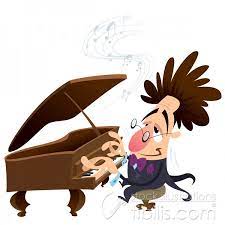A pianist cites a "raging debate as to whether the thumb note in Chopin's Prelude No. 8 should be held." Some debaters were of the opinion that "'in all Chopin', notes are to be physically held for their notated duration. No sources were cited. Others insisted that Chopin himself would not have held the notes. My question to you is whether Chopin said anything definitive about this issue of holding notes. I have not been able to come up with anything."
 |
| Chopin's Prelude No. 8 |
This issue is at the heart of many (most?) technical problems that uninformed pianists suffer. It is about enslavement to the notation, particularly in music of the romantic period and beyond (I include Beethoven, particularly in his late period). My mantra: The score tells us what the music sounds like, not how it feels in our hands. To my knowledge, Chopin is not on record as having said "don't hold those notes." He did say, however, over and over again, that "flexibility" and "freedom" and other such concepts are of extreme importance.
I can't imagine he would have held down those notes. Their lengths and melodic importance are indicated with the quality of sound. To the nay sayers I would point out that in Prelude No. 8 as well as Prelude No. 1, C. has indicated pedal for the entire measure. Holding down both the note and the pedal seems to me like two jobs where one will suffice. I opt for the easier one, the one that gives me freedom.
 |
| Chopin's Prelude No. 1 |


